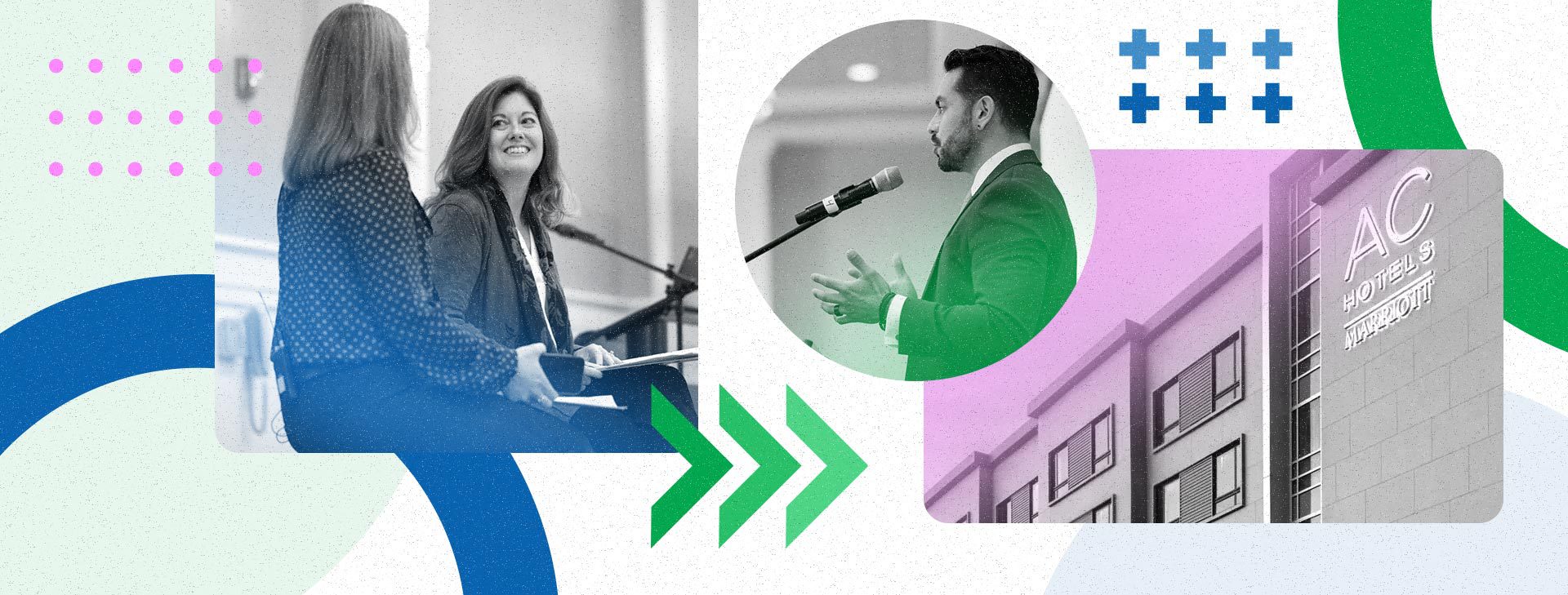
Assessment and Accountability to Monitor and Support Learning Recovery
Join Us for the 2022 Reidy Interactive Lecture Series (RILS) on September 22 and 23
We are excited to gather in Portsmouth, New Hampshire on September 22nd and 23rd for our annual conference, the Reidy Interactive Lecture Series (RILS), held in person for the first time since 2019. People following our work and our writing will not be surprised that our focus this year is on the role of assessment and accountability in monitoring and supporting learning recovery and learning acceleration as we emerge from the pandemic.
Chalkbeat reporter Matt Barnum recently wrote: “American students are slowly starting to regain academic ground lost during the pandemic, according to nationwide and state testing data …The bad news is that students — particularly low-income, Black, and Hispanic students — remain far behind where they would be if not for the pandemic.”
Thus, we need to focus our efforts on accelerating student learning at a rate we have not yet seen on a broad scale in our country.
We needed this level of acceleration for many students before the pandemic. Acceleration must be implemented at the classroom level but designed and supported at levels above the classroom to provide appropriate curricula, professional development, and infrastructure changes. True to our namesake, Center for Assessment professionals and guest experts will share success stories and provide advice on how to use assessment and accountability to support and monitor student learning, particularly in terms of the obvious need to accelerate learning at rates we have only rarely seen.
Clearly, certain types of assessments are better at monitoring the long-term and large-scale effects of COVID on student learning and the hoped-for learning recovery. Other types of assessments can provide detailed information useful for teachers and others to facilitate student learning and growth. Recognizing these multiple needs and use-cases, this year’s RILS focuses on how state and district leaders can use assessment and accountability to both monitor and support learning recovery as we emerge from the dark cloud of the pandemic.
From Impact to Recovery: How State-Level Studies Help Inform Learning Recovery Efforts
The 2022 RILS will start with a big-picture view of the impact of pandemic disruptions on student achievement and growth based on the analysis of large-scale assessment data (interim and summative). We will draw from multiple case studies from states where we have provided support throughout the pandemic disruptions. In addition to thought leaders from the Center for Assessment, we will benefit from the insights of an expert panel of state leaders who have astutely leveraged their assessment and accountability systems to provide critical insights about the impact of pandemic disruptions.
Framing Pandemic Impact and Recovery: District Perspectives
The state role is critical for monitoring and supporting the recovery on a large scale, but the action of intervention and improvement happens at the district level. The second RILS session is designed to provide a contextual perspective of the impact of the pandemic on learning at the district level. We are fortunate to be joined by multiple district leaders who will describe the various mitigating processes and practices that their districts have put in place. One of the main goals of this session is to have RILS participants gain a deeper understanding of the complexities and interactions of factors on the ground and how these district leaders have used the various assessment and accountability-related data for managing this challenging situation.
Focusing on the Classroom: Formative Assessment Processes to Accelerate Learning
The research literature is quite clear, as noted in Caroline Wylie’s recent guest post, that well-implemented formative practices are strongly related to gains in student learning. The third RILS session focuses on the power and potential of formative assessment processes and practices to accelerate student learning while recognizing the systemic implementation barriers and facilitators. The session will begin with an overview of the factors that foster as well as those that impede formative assessment in classrooms. This session will also include advice on what states and local education agencies can do to support high-quality implementation. A panel comprising national, state, and local education leaders and teachers will share their experiences related to supporting high-quality formative assessment processes in classrooms. They will address questions such as: what tends to work and what does not work, for whom, under what conditions, and why?
How Do We Know Whether Efforts to Accelerate Learning Are Succeeding?
District and state leaders need to answer questions regarding whether and to what degree their learning acceleration initiatives are “working” to improve student learning. Additionally, these leaders will need to monitor the fidelity/quality of the proposed interventions and the intended (and unintended) near- and medium-term outcomes all before they receive their state summative test scores at the end of the year. In this RILS session, we will provide practical models for program evaluation to identify barriers and monitor the effectiveness of support for accelerating student learning.
The Role of State Accountability and Reporting to Support Learning Recovery
These are extraordinary times for school accountability. The pandemic disruptions have been substantial and will have a multi-year impact on student learning. This final RILS session addresses how accountability and reporting can be used to support and not hinder recovery. In addition to reviewing results from a survey of state accountability directors, this session will provide advice from multiple perspectives about how state leaders can best respond to the challenges of assessment and accountability disruption while leveraging accountability and reporting to illuminate important findings and offer appropriate support to schools and districts.
Putting the “I” in RILS
The Reidy Interactive Lecture Series is named after Ed Reidy who was best known for his work in innovative assessment programs—notably in Kentucky’s ground-breaking systemic reform. Ed was most interested in the applications of assessment in the service of improved teaching and learning along with ensuring the equitable distribution of educational opportunities that made a difference in the lives of children and adults. Critically, Ed insisted on working collaboratively and interactively with educators, parents, policymakers, and other stakeholders before settling on major policies. The Center’s RILS conference honors Ed’s memory by ensuring all sessions include significant opportunities for meaningful interactions among participants, panelists, and Center experts. We hope you join us in Portsmouth, NH on September 22nd and 23rd.
Please see the Center for Assessment’s Events Page for more information and to register.

